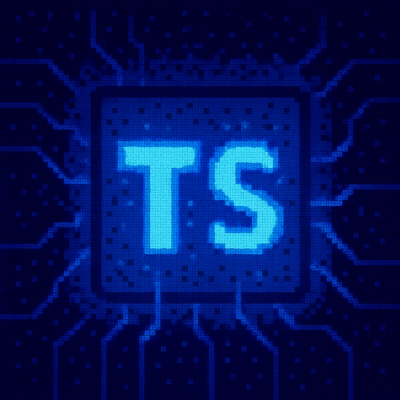
Security News
Critical Security Vulnerability in React Server Components
React disclosed a CVSS 10.0 RCE in React Server Components and is advising users to upgrade affected packages and frameworks to patched versions now.
http-link-header
Advanced tools
Parse & format HTTP link headers according to RFC 8288
$ npm install --save http-link-header
While RFC 8288, Section 3.1 states that relative URI-References MUST be resolved by the parsers – this library DOES NOT. This is due to the parser not having an input for the absolute or canonical URI of the related document. Currently there are no plans to add this, and it is left to the user whether or not to resolve relative URIs.
var LinkHeader = require( 'http-link-header' )
var link = LinkHeader.parse(
'<example.com>; rel="example"; title="Example Website", ' +
'<example-01.com>; rel="alternate"; title="Alternate Example Domain"'
)
> Link {
refs: [
{ uri: 'example.com', rel: 'example', title: 'Example Website' },
{ uri: 'example-01.com', rel: 'alternate', title: 'Alternate Example Domain' },
]
}
link.has( 'rel', 'alternate' )
> true
link.get( 'rel', 'alternate' )
> [
{ uri: 'example-01.com', rel: 'alternate', title: 'Alternate Example Domain' }
]
// Shorthand for `rel` attributes
link.rel( 'alternate' )
> [
{ uri: 'example-01.com', rel: 'alternate', title: 'Alternate Example Domain' }
]
link.set({ uri: 'https://example.com/next', rel: 'next' })
> Link {
refs: [
{ uri: 'example.com', rel: 'example', title: 'Example Website' },
{ uri: 'example-01.com', rel: 'alternate', title: 'Alternate Example Domain' },
{ rel: 'next', uri: 'https://example.com/next' }
]
}
link.setUnique({
uri: 'https://example.com/image.png',
rel: 'preload',
as: 'image',
type: 'image/png'
})
> Link {
refs: [
{ uri: 'https://example.com/image.png', rel: 'preload', as: 'image', type: 'image/png' }
]
}
link.setUnique({
uri: 'https://example.com/image.png',
rel: 'preload',
as: 'image',
type: 'image/png'
})
> Link {
refs: [
{ uri: 'https://example.com/image.png', rel: 'preload', as: 'image', type: 'image/png' }
]
}
var link = new LinkHeader()
link.parse( '<example.com>; rel="example"; title="Example Website"' )
> Link {
refs: [
{ uri: 'example.com', rel: 'example', title: 'Example Website' },
]
}
link.parse( '<example-01.com>; rel="alternate"; title="Alternate Example Domain"' )
> Link {
refs: [
{ uri: 'example.com', rel: 'example', title: 'Example Website' },
{ uri: 'example-01.com', rel: 'alternate', title: 'Alternate Example Domain' },
]
}
link.parse( '<example-02.com>; rel="alternate"; title="Second Alternate Example Domain"' )
> Link {
refs: [
{ uri: 'example.com', rel: 'example', title: 'Example Website' },
{ uri: 'example-01.com', rel: 'alternate', title: 'Alternate Example Domain' },
{ uri: 'example-02.com', rel: 'alternate', title: 'Second Alternate Example Domain' },
]
}
link.parse( '</extended-attr-example>; rel=start; title*=UTF-8\'en\'%E2%91%A0%E2%93%AB%E2%85%93%E3%8F%A8%E2%99%B3%F0%9D%84%9E%CE%BB' )
> Link {
refs: [
{ uri: '/extended-attr-example', rel: 'start', 'title*': { language: 'en', encoding: null, value: '①⓫⅓㏨♳𝄞λ' } }
]
}
link.toString()
> '<example.com>; rel=example; title="Example Website", <example-01.com>; rel=alternate; title="Alternate Example Domain"'
$ npm run benchmark
# http-link-header .parse() ⨉ 1000000
ok ~1.29 s (1 s + 289696759 ns)
# http-link-header #toString() ⨉ 1000000
ok ~554 ms (0 s + 553782657 ns)
The parse-link-header package is another library for parsing HTTP Link headers. It provides similar functionality to http-link-header but focuses solely on parsing and does not offer construction capabilities. It is simpler and may be preferred if you only need to parse Link headers.
The http-headers package is a more general library for parsing and constructing HTTP headers, including but not limited to Link headers. It offers a broader range of functionality compared to http-link-header, making it suitable for more complex HTTP header manipulations.
FAQs
Parse & format HTTP link headers according to RFC 8288
The npm package http-link-header receives a total of 1,346,163 weekly downloads. As such, http-link-header popularity was classified as popular.
We found that http-link-header demonstrated a not healthy version release cadence and project activity because the last version was released a year ago. It has 1 open source maintainer collaborating on the project.
Did you know?

Socket for GitHub automatically highlights issues in each pull request and monitors the health of all your open source dependencies. Discover the contents of your packages and block harmful activity before you install or update your dependencies.

Security News
React disclosed a CVSS 10.0 RCE in React Server Components and is advising users to upgrade affected packages and frameworks to patched versions now.

Research
/Security News
We spotted a wave of auto-generated “elf-*” npm packages published every two minutes from new accounts, with simple malware variants and early takedowns underway.

Security News
TypeScript 6.0 will be the last JavaScript-based major release, as the project shifts to the TypeScript 7 native toolchain with major build speedups.